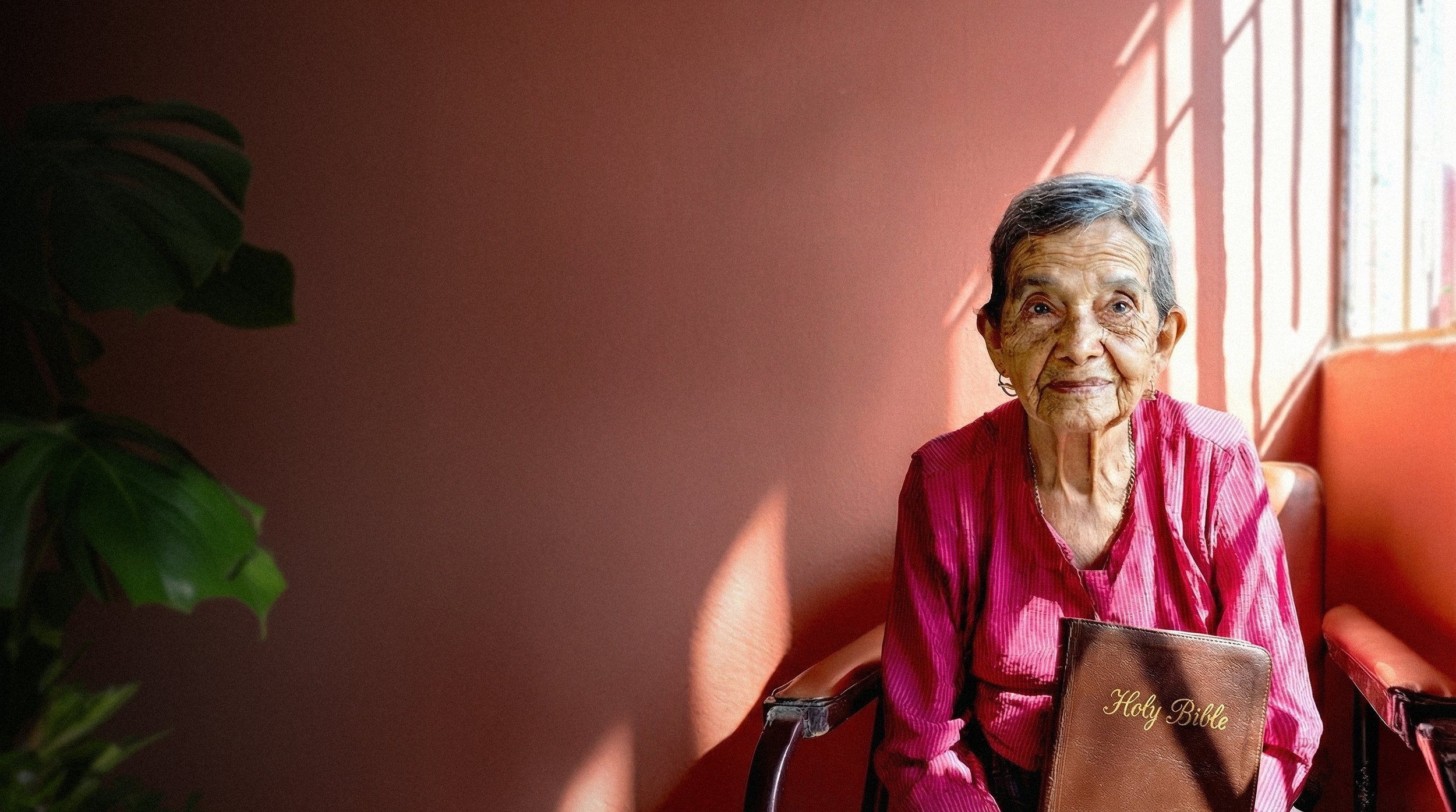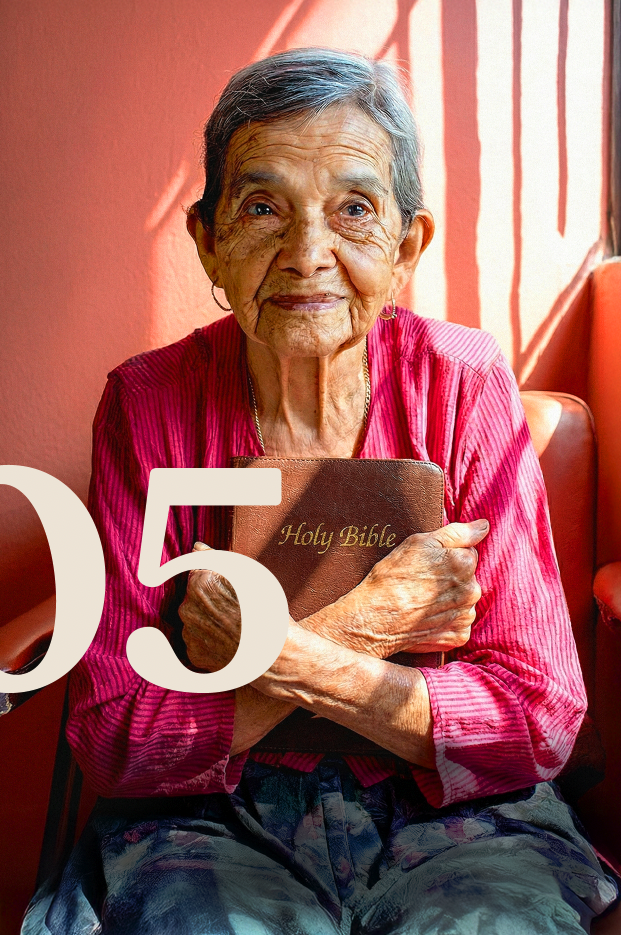
We think sometimes that poverty is only being hungry, naked and homeless. The poverty of being unwanted, unloved and uncared for is the greatest poverty.
Mother Teresa
HEAR YE, HEAR YE
Let’s do something really old together.
Every week, we gather at a local nursing home to practice a tradition from the 13th Century B.C. The Bible calls it the “public reading of scripture.” It’s simple — we circle up and take turns reading scripture out loud as it was originally designed to be consumed. Residents of the nursing home are invited to read with us or just listen in as we pay attention to how the Holy Spirit might be speaking to us.
-
Many people experiencing homelessness face a difficult choice between work and food, often opting to secure a spot in line for employment at day-labor agencies instead of receiving meal services at shelters.
-
Every week, in solidarity, we get up earlier than the day-laborers to make breakfast and center ourselves in prayer. We head over to the local labor pools and lay down a tablecloth, put out freshly picked flowers, and begin our feast together.
The menu varies each week based on what is donated/purchased but is usually comprised of homemade bread with honey butter, pastries donated from Panera, oranges, hard-boiled eggs collected from our hens, and orange juice.
SEE ALL NEIGHBORLY INITIATIVES
-
In Ngamwa, Kenya, families who rely on rainwater face life-threatening waterborne illnesses due to toxins in the air and bacteria, such as bird feces, on roofs. During the dry season, they collect water from the Sagana River, contaminated by cattle feces and agricultural fertilizers. Both water sources lead to easily preventable diseases like cholera, dysentery, and typhoid, which claim 2,739 lives globally each day.
-
In rural communities where there is no central location where it would make sense to dig a well for people to collect water from, we’ve found a way to bring clean water into each home through water purification tablets.
-
Refugees, who are fleeing persecution and war, are met in the U.S. with multiple services to help them reclaim their lives. Rarely, however, is there someone to help them navigate their new reality. That’s where people, not programs, step in. That’s where you step in.
-
The Old Testament practice of Jubilee was God's systemic plan for dismantling inequality through the redistribution of wealth. Each month at a local Neighborly House we host a Jubilee Marketplace where refugees are invited to shop through that week's in-kind donations, do arts and crafts, play games, practice English, and eat a meal with our local volunteers.
-
In Kenya, where school uniforms are required for education, a single piece of cloth stands between a child and their ability to end the cycle of poverty by receiving an education.
-
We partner with the families of the most vulnerable children to provide school uniforms to pupils at Ngamwa Primary School in Nyeri, Kenya.
-
Mother Teresa said, "The greatest poverty of all is the feeling of being unwanted, unloved, and uncared for." Seniors at assisted living homes are especially susceptible to this form of poverty.
-
The “public reading of scripture” is a sacred practice launched by Moses in the wilderness and commanded by the apostle Paul in his letter to Timothy. Since 2020, we have been upholding this tradition by reading the Bible aloud weekly, in service to our elders at assisted living homes who either receive no visitors, are vision impaired, or suffer from dementia.





